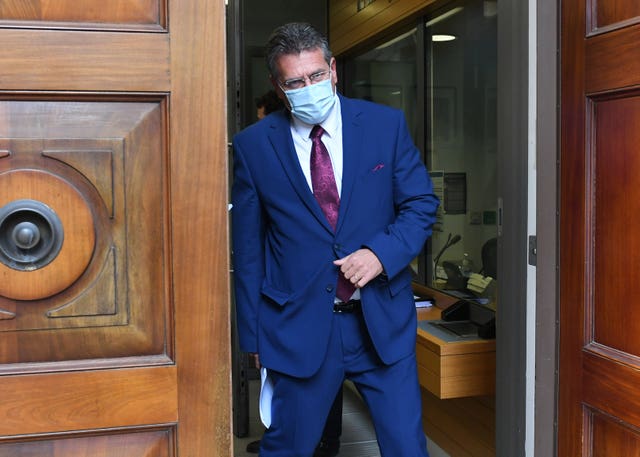Upskilling
skills in all walks of life
The
talk of the town is upskilling your workforce to meet tomorrow. Whether it be
doctors, bankers, or even the Police force.
The
start of the recession might also be the final straw in a long line of
difficulties this year has ushered in for individuals. We are going through
tough challenges, in fact compounded challenges. It is not just one thing for a
lot of people, it’s a snowball effect.
We
are seeing the impact of people unable with coping methods. We see the
threshold of tolerance, excessive drinking, excessive binge eating at home. We
hear of a five-fold increase in calls for all forms of help since end of March
2020.
We
also know that the world of work has changed beyond recognition. Job roles,
working patterns, working styles and even business strategies all continuing to
change rapidly and continuously, as such businesses face one of the biggest
challenges of our time, keeping people’s skills in sync with the volatility of
work.
Upskilling
is considered by some as one answer. Firms which invest in advancing upskilling
strategies convey a message, create a higher employee engagement, do a better
job of attracting and retraining talent. Some of them are accelerating digital
transformation, are innovating faster and react to new market opportunities much
faster.
How
can you identify future work skills?
Let
us suppose your business needs to focus on say “brand strategy,” that in itself
becomes a critical skill.
Of
course, the skills identified will vary from business to business, service to
service, by role and career aspiration.
But
employees who are excited in learning new skills, are sure to build a stronger
company culture as well as remain in the company and useful to the company
longer.
There
are ways to find this out. First, you need to assess the skills, establish a
minimum standard of current skills and capabilities, then focus on the future
skills you have identified as critical to create a dynamic talent
strategy.
Of
course, we cannot predict the future. But we have some tools to do just that.
For this assessment you need a Skills Inventory, Skills Ratings, Skills
Progression, Skills Gaps.
The
trick is in an Upskilling strategy which will impart business priorities and a
Plan of Action and setting targets.
What
is the need of the hour, what do we need next month, next year, next three
years or the next decade? With this baseline, many firms now plan to help
determine how the business will go about the future skills it needs to fill the
gaps.
It
is also realistic as employees will only be able to focus on gaining a couple
of skills at any one time.
How
do people learn new skills?
We
are told people learn best when multiple learning methods are blended. Some of
these multiple learning technics are as follows:
1. Online and self-directed method.
Perhaps, it is a trial and error method, seeking to learn through self-taught
classes, articles, podcasts, webinars, etc.
2. Team based learning, given by the
company.
3. Peer to Peer learning, where employees
seek help and advice from their co-workers to learn.
4. On the Job-development, a clear case of
this is “Stretch Assignments”.
One
Example is how the British Police, is going about in my opinion filling skill
gaps, all the time coping with its duty and its tight budget.
The
days are gone when the Bobby was wearing a hard helmet hat with a baton on the
side of his belt and walking the beat. Today, the ride the fast-moving vehicles
and officers are called to perform more than one duty.
Today’s
world is not only knife crime, but psychology and coping with, the pandemic.
Work
is not just about money, it is about a sense of purpose, identity, and
structure to life.
Security
forces are having to cope with medical anxiety, the impending recession. The
looming possibility of losing a job, having to live a hand to mouth existence,
of what little one has, will have its own psychological impact.
Police
in Britain are being trained not to put handcuffs and fill police cells. They
are in the frontline of how to handle this crisis and particularly how to
resolve issues, perhaps, without Court intervention. Courts are not in full session;
lawyers are in hibernation.
But
the law must carry on regardless?
The
easing of lockdown will not address any, if not many, of the underlying issues.
The
worst is yet to come, say not only pessimists, but also pragmatists.
There
is going to be more Brexit madness. The European Union Parliament has drawn a
“red line” on letting talks push past end October 2020.
Boris
Johnson, in the true Churchillian spirit has also drawn up legislation that
will override the Brexit Withdrawal Agreement on Northern Ireland, a move that
threatens the collapse of the crunch talks, which the Prime Minister said must
be completed by October 15,2020, or Britain will walk away for good.
Staying
inside the EU is now a dream, “coronavirus or no Coronavirus”? There is no
appetite to revisit the Brexit issue.
The
bird has flown out of the cage. A new skillset is in the making in Britain?
Victor
Cherubim








